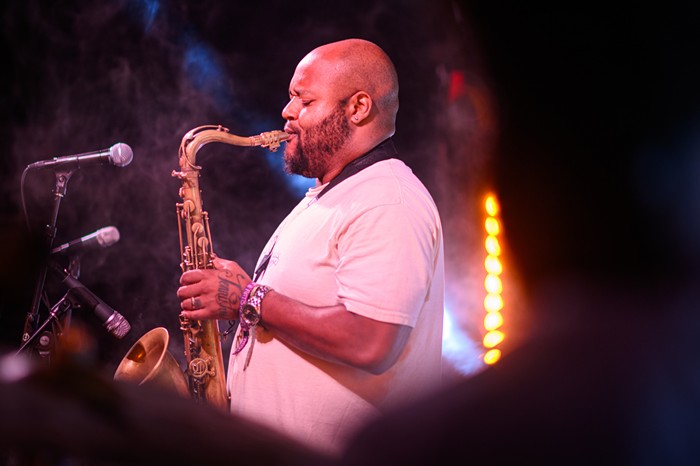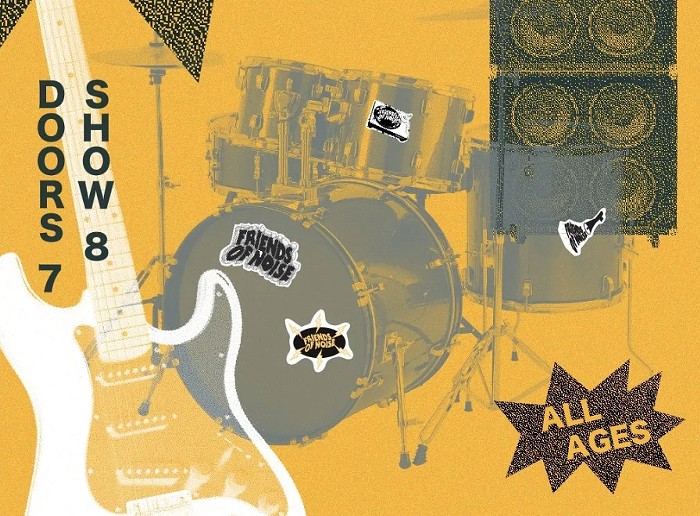"I SING ABOUT LIFE," explains Omara "Bombino" Moctar. "In life, there are big important cultural issues that occupy your mind and heart, and there are also personal and intimate issues that inspire you."
Over email, Moctar, who is fluent in French and his native Tuareg language Tamasheq, describes how his band Bombino's recently released fifth album, Azel, vacillates between matters of the heart and his strong ties to his African upbringing. On the new album, Moctar's deft, hypnotic playing meets vocal harmonies—a first for the band—to create a hybrid genre Moctar calls "Tuareggae." The style is a symbiosis of complementary energies found on songs like "Timtar (Memories)," a pleading love opus to an ex-girlfriend, and "Iwaranagh (We Must)," an austere declaration of fervent independence and pride for the Tuareg people.
Bombino's romantic side can also be found on "Timtar (Memories)" and songs like "Inar (If You Know the Degree of My Love for You)." These offer a bit of salve from Moctar's more cerebral song topics, which espouse allegiance to cultural traditions from his Saharan roots, and pay tribute to martyrs who died during the Tuareg rebellion in Mali and Niger in the early '90s in the song "Ashuhada."
"It is the responsibility of Tuareg artists that have the good fortune of traveling outside of Africa to act like ambassadors of the Tuareg people and our culture," says Moctar.
It's his effectiveness at expressing the ebbs and flows of his life through a majestic haze of desert blues—keeping in mind guitars were banned during the Tuareg Rebellion in 2007—and his natural curiosity as an artist that makes Azel an affecting piece of work.
Since Bombino's 2009 release, Group Bombino—Guitars from Agadez, Vol. 2 from Sublime Frequencies, Western musicians have salivated over Moctar's playing, as well as the sheer presence of his six-piece band, who typically perform in traditional Tuareg dress. It's a spectacle not easily forgotten, and one that inspired a collaboration with the Black Keys' Dan Auerbach, who produced the band's 2013 LP, Nomad. This time around, Bombino had Dave Longstreth (Dirty Projectors) produce Azel.
"It was because of him that there are vocal harmonies on this album," says Moctar. "This is something that has never been done before in Tuareg music, but we decided to try it because he was passionate about the idea, and we were very pleased with the results. Like Tuareggae, it's something new for my fans and for fans of Tuareg music in general."
Moctar admits that despite the artistic loyalties to his traditional musical skillsets, he has been strongly influenced by the hundreds of musicians he's shared stages with all over the world for the last five years.
"My shows now have much more structure and arrangement than they had before, and this is thanks to the collective influence of other musicians I have seen and worked with," explains Moctar. "I have simply changed in the same ways as everyone else, but for me, being Tuareg remains the most important part of my identity."


















